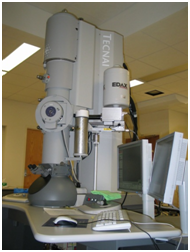AMLCI Research Facilities
The 60,000 square-foot (5.400m2) Liquid Crystal and Materials Sciences building, historic home of the LCI, houses the AMLCI's dedicated research and instructional facilities. The facilities are specifically designed to support the synthesis and characterization of advanced materials and the prototyping of devices. You will find below information on how to access specific facilities. In addition to these dedicated facilities AMLCI members have access to an array of diverse facilities from across the university made available through our interdisciplinary collaborations.
Facility Reservation Software
AMLCI is happy to present our new facility management and reservation software.
We have deployed . We will no longer use our old system as of May 2021. If you're still using the old system, the links below will help you get set up on the new system.
If you're an internal user, meaning you have a kent.edu email address, you will use the .
If you don't have a kent.edu email address, use the .
Cleanroom Research and Prototype Facility
 The AMLCI Prototype Facility offers a wide range of services & capabilities related to fabrication of micro-optical and display devices using liquid crystals, microfluidic and biomedical devices, and functional micro- and nano-structures. The facility is centered in a 3,500 square foot Class 100-1,000-10,000 clean room facility for manufacturing or prototyping of liquid crystal devices & related research. The facility provides custom LCD devices which are not available elsewhere.
The AMLCI Prototype Facility offers a wide range of services & capabilities related to fabrication of micro-optical and display devices using liquid crystals, microfluidic and biomedical devices, and functional micro- and nano-structures. The facility is centered in a 3,500 square foot Class 100-1,000-10,000 clean room facility for manufacturing or prototyping of liquid crystal devices & related research. The facility provides custom LCD devices which are not available elsewhere.
- Supervisor/Contact: Samuel Sprunt
Phone: 330-672-2682 Email: ssprunt@kent.edu - Supervisor/Contact: De√Īa Agra-Kooijman
Phone: 330-672-1558 Email: dagrako@kent.edu - Contact: Doug Bryant
Phone: 330-672-1583 Email: dbryant@kent.edu
Characterization Facility
 The AMLCI Characterization Facility is equipped with a series of instruments to determine the microscopic structures and properties of bulk and surfaces of liquid crystals, soft and biological materials. The Cryo-Transmission Electron Microscopy (TEM), Scanning Electron Microscopy(SEM) and Atomic Force Microscopy(AFM) offer atomic/nanoscale material characterization for cross-disciplinary (materials science/biology/nanotechnology) research. Available techniques include: traditional TEM, high resolution TEM (HRTEM), scanning TEM (STEM), cryo-TEM, electron diffraction techniques, energy-filtered TEM, electron energy loss spectroscopy (EELS), and energy dispersive x-ray spectroscopy (EDS). Optical microscopy and spectroscopy equipment (confocal laser scanning microscopy, FTIR microscopy, etc.) is also available.
The AMLCI Characterization Facility is equipped with a series of instruments to determine the microscopic structures and properties of bulk and surfaces of liquid crystals, soft and biological materials. The Cryo-Transmission Electron Microscopy (TEM), Scanning Electron Microscopy(SEM) and Atomic Force Microscopy(AFM) offer atomic/nanoscale material characterization for cross-disciplinary (materials science/biology/nanotechnology) research. Available techniques include: traditional TEM, high resolution TEM (HRTEM), scanning TEM (STEM), cryo-TEM, electron diffraction techniques, energy-filtered TEM, electron energy loss spectroscopy (EELS), and energy dispersive x-ray spectroscopy (EDS). Optical microscopy and spectroscopy equipment (confocal laser scanning microscopy, FTIR microscopy, etc.) is also available.
- Supervisor/Contact: Rob Clements
Phone: 330-672-2410 Email: rclement@kent.edu Supervisor/Contact: Min Gao
Phone: 330-672-7999 Email: mgao@kent.edu
Organic Synthesis Facility
 The Organic Synthesis Facility at the Advanced Materials and Liquid Crystal Institute is equipped with the necessary infrastructure and expertise required to synthesize and characterize liquid crystalline compounds. The facility is well known for supplying high quality liquid crystalline materials. The primary mission of the Facility is to prepare reported liquid crystalline materials for researchers which are not commercially available. The facility can synthesize calamitic, discotic, and bent-core compounds. Both chiral and achiral materials can be prepared and supplied upon request. Any researcher in need of materials is required to submit a request along with the necessary published literature about the materials. A fee may be charged to replenish the cost of procuring the required starting materials, reagents, etc. Furthermore, purification service of organic compounds is available. Formulation of mixtures is also possible when an exact composition is provided.
The Organic Synthesis Facility at the Advanced Materials and Liquid Crystal Institute is equipped with the necessary infrastructure and expertise required to synthesize and characterize liquid crystalline compounds. The facility is well known for supplying high quality liquid crystalline materials. The primary mission of the Facility is to prepare reported liquid crystalline materials for researchers which are not commercially available. The facility can synthesize calamitic, discotic, and bent-core compounds. Both chiral and achiral materials can be prepared and supplied upon request. Any researcher in need of materials is required to submit a request along with the necessary published literature about the materials. A fee may be charged to replenish the cost of procuring the required starting materials, reagents, etc. Furthermore, purification service of organic compounds is available. Formulation of mixtures is also possible when an exact composition is provided.
- Supervisor/Contact: Rob Clements
Phone: 330-672-2410 Email: rclement@kent.edu - Contact: Hari Bisoyi
Phone: 330-672-1547 Email: hbisoyi@kent.edu
Machine Shop
- Supervisor/Contact: Rob Clements
Phone: 330-672-2410 Email: rclement@kent.edu - Supervisor/Contact: De√Īa Agra-Kooijman
Phone: 330-672-1558 Email: dagrako@kent.edu
Electronic Shop
- Supervisor/Contact: Rob Clements
Phone: 330-672-2410 Email: rclement@kent.edu - Supervisor/Contact: De√Īa Agra-Kooijman
Phone: 330-672-1558 Email: dagrako@kent.edu
